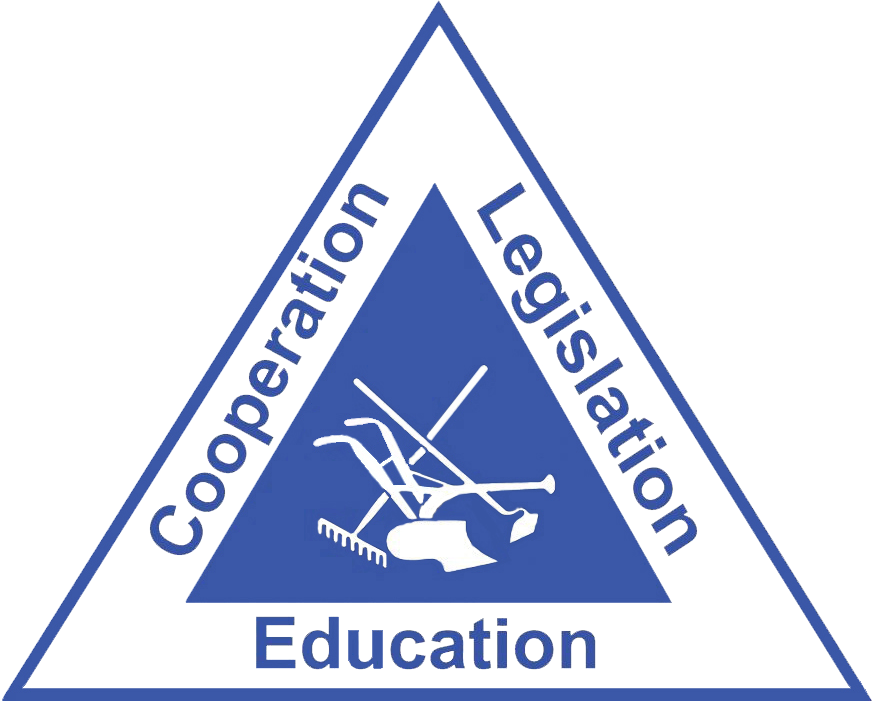Introduced by:
Sen. Jim Smith of Omaha (Dist. 14) and contains provisions of Governor Ricketts tax package related to income taxes and agricultural land valuation.
Status:
• Slated for first round floor debate Fri., April 21 (9 a.m. – with 3 hour limit on debate)
• Advanced from Revenue Committee with Amendment
o Yes – Brasch, Friesen, Groene, Larson, Lindstrom, Smith
o No – Schumacher, Harr
What does it do?
The Committee advanced version of LB 461 would:
1. Value agricultural land using a formula where values would be based in both income potential and market value.
2. Prevent aggregate agricultural land valuation from increasing more than 3.5% from the prior year.
3. Reduce the four-existing individual income tax brackets to three by combining the first and second brackets into one tax bracket at 3.25%. The new top bracket rate would begin to decrease when projected rate of growth in state general fund receipts exceed 3.5%.
4. Reduces the top Corporate Income Tax rate from 7.81% to 7.59% using a similar mechanism of lowering the rate based on projected growth in state general fund receipts.
What’s our position?
Nebraskans United position is that the bill doesn’t meet our principles because it places greater emphasis on income taxes than property taxes. Furthermore, it could jeopardize future school funding. To be acceptable, the bill would need to provide considerably more in the way of property tax relief as well as address other provisions.
1. LB 461 is estimated to provide more than $400 million in individual and corporate tax relief, while only around $46 million in property tax relief.
• Meaningful and significant property tax reform and relief is Farm Bureau’s highest priority. The bill gives $10 of income tax relief for every $1 of property tax relief. Property taxes must receive the larger and greater share of any tax relief.
• Property taxes already account for 48% of the combined collections of property, state sales, and state income taxes. Giving $400 million of income tax cuts only pushes the tax burden further out of balance.
2. If passed as is, LB 461 would put greater pressure on property taxes. In times of a state budget shortfall, the sheer volume of the income tax cuts proposed will put pressure on the legislature to push more state funded responsibilities like education onto local property taxes in order to balance the state budget. The legislature needs to ensure mandatory cuts in income taxes do not lead to increased pressure on property taxes by expanding the tax base.
3. LB 461 bases income tax cuts on projected, not real general fund revenue receipts. It is imperative the legislature not budget mandatory income tax cuts on “projected” revenues. Doing so could again put more pressure on the legislature to underfund state priorities like schools and put pressure on property taxes.
4. There is no guarantee the agriculture land valuation change in LB 461 lowers property taxes, and even if there are reductions, such reductions would be minimal.
• LB 461 would reduce property taxes by $34 million in the first year of implementation. That’s less than 1% of the total property taxes levied in 2016. Property tax relief needs to be meaningful and significant
• The 3.5% cap on ag land valuation increases is an aggregate, not an individual cap. That means that not all ag land owners will see a reduction in property taxes, nor does limiting valuation assure property taxes don’t increase.
• LB 461 is not the same as “income approaches” used for valuing agricultural land in neighboring states. The formula in LB 461 still ties agricultural land values to market conditions.
• LB 461 ag land valuation changes do not ensure that property taxes on agriculture land in Nebraska will be similar to that of comparable farmland in neighboring states.
5. In its entirety, LB 461 will not reduce the overreliance on property taxes to fund government. Given the income tax reductions, the balance between income, sales, and property taxes will still lean more heavily on property taxes.
Who shares our position?
• The Nebraska Ag Leaders Working Group
• Reform for Nebraska’s Future
What can members do to help?
Contact their state senator and tell them LB 461 isn’t acceptable in its current from. Let them know:
1. Property taxes are the priority. Any tax reductions should be heavily weighted to property tax relief, not income tax relief.
2. Tell them that efforts to reduce income taxes must not put pressure on local property taxes.
NeFU President John Hansen’s take:
- Current state revenues from sales and income taxes are at least a $Billion short of meeting state financial obligations.
- The number one issue Nebraskans want addressed is property tax relief, not income tax relief. All the polling data confirms what the State Senators are saying to me when I talk to them: there is virtually NO constituent pressure from back in the district for income tax reforms—it is a ALL property taxes.
- The only people pushing for income tax reductions are Governor Ricketts (a billionaire), Revenue Committee Chair Jim Smith ( a man on a 6 year mission to lower income taxes), the Platte Institute, and corporate Omaha executives—also known as fat cats.
- LB461 will hamstring the state’s future revenues making it even more difficult in the days ahead to adequately fund schools, honor other infrastructure obligations, and reduce the K-12 education’s over reliance on property taxes. LB461 sends a clear and strong message: Nebraska is not serious about dealing with the property tax crisis. LB461 will increase our future property tax burdens.
- LB461 does not fix the ag land values problem. Remember, our starting values for real estate taxing purposes are currently way higher than any of our neighboring states. That will not change with LB461. See the more detailed information below. If the proposed earnings capacity/sales formula represented real progress, why does every farm and commodity organization in the state oppose them?????
- 27 farm and educational organizations in the Nebraskans United Coalition for Education and Property Tax Reform strongly oppose LB461, not mentioning the dozens and dozens of other statewide organizations in other coalitions.
- LB461 is all about fiscal and political field position for now and in the future. It represents a HUGE step backwards relative to our state’s future ability to address property tax reform. Governor Ricketts is working against us. He is betting we don’t care enough about this issue to actively oppose him. What do you think about that?

